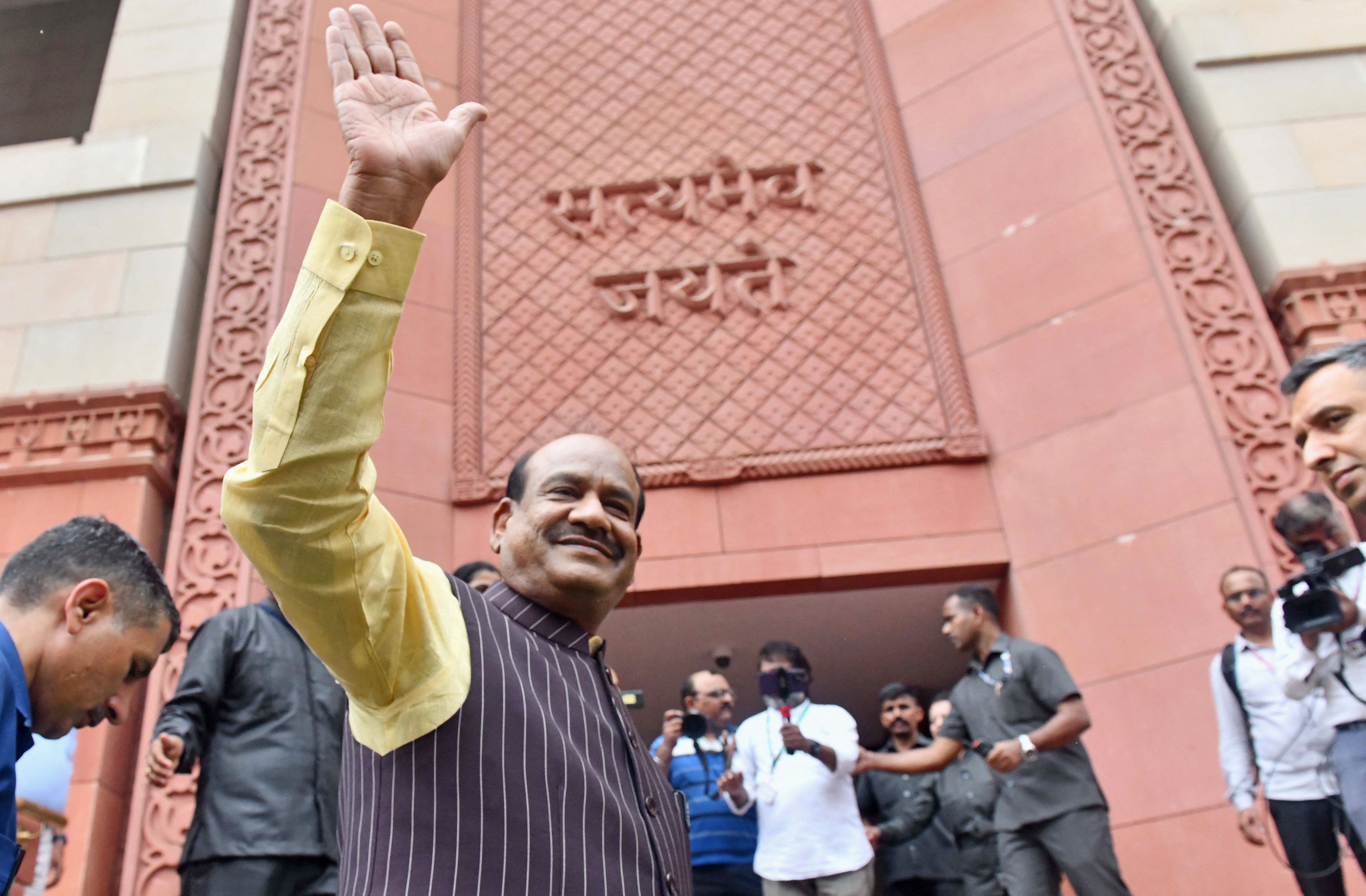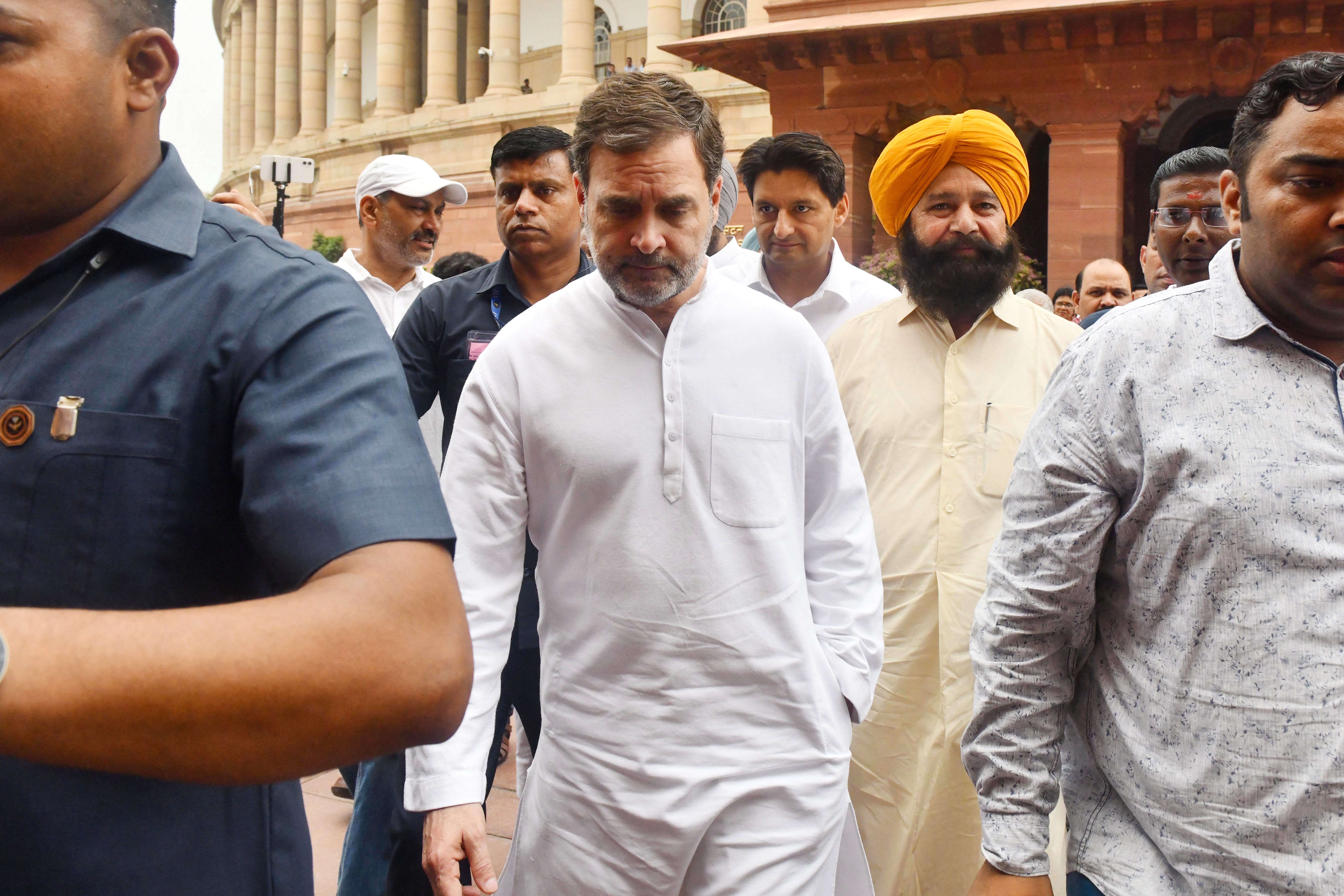Modi’s fragile new majority passes first test with election of speaker
Modi’s candidate wins election after talks with a resurgent opposition break down
Indian prime minister Narendra Modi‘s government has passed its first test in parliament after his return to power with a significantly reduced mandate, winning a vote to select the speaker of the lower house.
The fact that there was a contest at all for the speaker post is a reflection of the opposition’s newfound confidence after the unexpectedly close election results earlier this month.
Om Birla, a candidate from Mr Modi’s Bharatiya Janata Party (BJP), defeated the opposition candidate K Suresh, an eight-time MP from the opposition Congress party, through a voice vote in parliament.
Mr Birla, an MP from Kota in Rajasthan, has already served one term as a speaker and was re-elected in the first contested election for the post since 1976.
The speaker of the Lok Sabha, as the lower house is known, is usually selected unopposed through a consensus between parties. It is typically a candidate from the party or coalition which forms the majority. The BJP-led National Democratic Alliance (NDA) has 293 members, while the opposition INDIA bloc has 233.
The Lok Sabha has 543 seats, meaning 272 are required for a majority, and Mr Modi’s BJP fell short of this mark for the first time since he became the party’s leader in this summer’s election. It means the Hindu nationalist party is forced to rely on regional allies to govern, potentially limiting its ability to pass key reforms during Mr Modi’s third term.

A draft consensus between Mr Modi’s ruling bloc and the opposition broke down on Tuesday when the INDIA opposition alliance demanded that the deputy speaker’s post be offered to them.
“We knew that we don’t have the numbers but it was necessary to remind them that we won’t let them do whatever they please,” said Priyanka Chaturvedi, an MP from the opposition bloc.
Amid the drama late on Tuesday night, Rahul Gandhi, the former president and best-known face of the Congress party, was declared the leader of the opposition.
This is the first time the scion of the Nehru-Gandhi family, which has provided India three of its former prime ministers, will hold a formal constitutional role.
Despite their bitter rivalry during the elections, which saw both admonished for their campaign speeches by the country’s electoral body, Mr Gandhi joined Mr Modi in welcoming Mr Birla’s return as speaker.
“It is very important that the voice of the opposition is allowed to be represented in this house,” Mr Gandhi said in his speech.
The speaker, who presides over the lower house and conducts debates, plays a critical role in the passage of laws.

Mr Modi said the re-election of Mr Birla for a second term was a point of honour and reminded the house that key bills were passed under his last term.
“I congratulate you on behalf of the entire House and look forward to your guidance for the next five years. Your sweet smile keeps the entire House happy,” he said in his speech.
“The works that didn’t happen during 70 years of independence, were made possible by this House under your chairmanship. Key bills were passed under your leadership.”
The semblance of unity in the house did not last long, as Mr Birla used his acceptance speech to mention the “dark days of Emergency” under the 1970s rule of Congress prime minister Indira Gandhi, calling for a two-minute silence.
Congress MP Shashi Tharoor said it was “unfortunate” that the speaker undermined the spirit of consensus with his “divisive” statement.
This year marks the 50th anniversary of the Emergency, a 21-month period from 1975 to 1977 in which civil liberties and press freedom in India were suspended.
Join our commenting forum
Join thought-provoking conversations, follow other Independent readers and see their replies
Comments
Bookmark popover
Removed from bookmarks